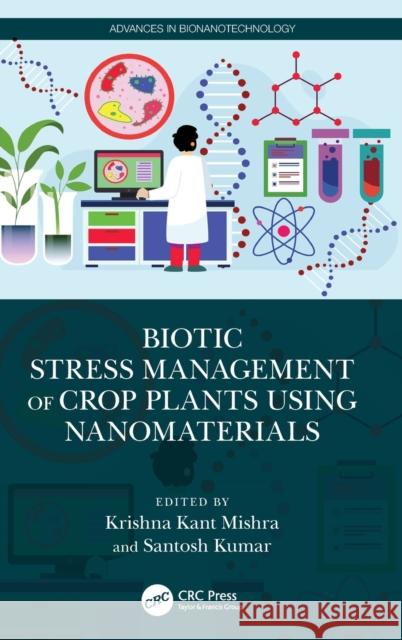Biotic Stress Management of Crop Plants using Nanomaterials » książka
Biotic Stress Management of Crop Plants using Nanomaterials
ISBN-13: 9781032344317 / Angielski / Twarda / 2023 / 240 str.
Biotic Stress Management of Crop Plants using Nanomaterials
ISBN-13: 9781032344317 / Angielski / Twarda / 2023 / 240 str.
(netto: 627,14 VAT: 5%)
Najniższa cena z 30 dni: 579,30
ok. 16-18 dni roboczych.
Darmowa dostawa!
This book summarizes nanotechnology-based agricultural research for crop productivity and the management of various plant pathogens. It deals with the application of nano-molecules for quick, cost-effective, and precise plant disease diagnostic procedures, plant pests and disease management, nano-pesticides, and nano-diagnostics. Further, it explains nanomaterials for biotic stress management, with an insight into the synthesis and modification of nanomaterials and their potential applications in different domains for disease management.Features include:Compilation of current research on the Nanomaterials as well as their versatile applications in plant biotic stress managementDescription of the role of nanomaterials as enzyme-mimicking nanoparticles, nano-pesticides, nano-fertilizers, and nanomaterialsReview of day-to-day problems related to crop plants, their diagnostics, and stress managementExploration of trends in nanomaterial utility in diagnostics, enzyme-mimicking, and crop protection, and their possible role in plant disease managementStudy of pertinent nanomaterials including synthetic strategies, properties, chemistry, and applicationsThis book is aimed at researchers and graduate students in plant pathology, genetic engineering, environmental science, botany, bioengineering, and nanotechnology.
This book summarizes nanotechnology-based agricultural research for crop productivity and the management of various plant pathogens. It deals with the application of nano-molecules for quick, cost-effective, and precise plant disease diagnostic procedures, plant pests and disease management, nano-pesticides, and nano-diagnostics. Further, it explains nanomaterials for biotic stress management, with an insight into the synthesis and modification of nanomaterials and their potential applications in different domains for disease management.
Features include:
- Compilation of current research on the Nanomaterials as well as their versatile applications in plant biotic stress management
- Description of the role of nanomaterials as enzyme-mimicking nanoparticles, nano-pesticides, nano-fertilizers, and nanomaterials
- Review of day-to-day problems related to crop plants, their diagnostics, and stress management
- Exploration of trends in nanomaterial utility in diagnostics, enzyme-mimicking, and crop protection, and their possible role in plant disease management
- Study of pertinent nanomaterials including synthetic strategies, properties, chemistry, and applications
This book is aimed at researchers and graduate students in plant pathology, genetic engineering, environmental science, botany, bioengineering, and nanotechnology.











